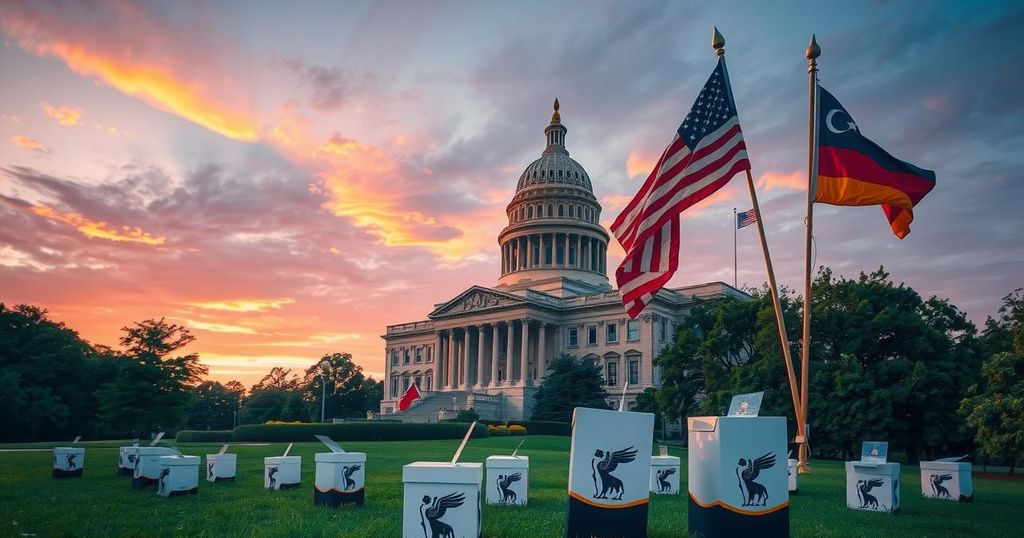Ecuador’s General Election: A Crucial Decision on Crime and Governance

Ecuador’s general election has concluded, featuring incumbent Daniel Noboa and challenger Luisa González. Candidates must achieve either over 50% or 40% with a 10-point lead to win; otherwise, a runoff is set for April 13. The election hinges on the future of Noboa’s crime policies compared to González’s alternative proposals as the nation faces critical challenges ahead.
Ecuador has concluded polling for its general election, which features 16 presidential candidates, including the incumbent Daniel Noboa and Luisa González, his primary opponent. According to the Constitution, a candidate must secure more than 50% of the vote to win outright, or at least 40% with a 10-point lead over the nearest contender. If neither criterion is met, a runoff will occur on April 13 between the top two candidates.
The election will determine whether the nation endorses Noboa’s stringent measures against crime or opts for González’s alternative vision. Since assuming the presidency in a snap election in 2023, Noboa has faced multiple crises, declaring numerous states of emergency and deploying military forces to combat escalating gang violence. His administration has also begun constructing a new high-security prison following an escape by a notorious criminal leader.
Conversely, González, who finished second in the 2023 elections, campaigns on the platform of “Reviving Ecuador.” She has close ties to former president Rafael Correa, a significant figure in Ecuadorian politics. González has vowed to address the drug trade with equal determination as Noboa, proposing alternative strategies for combating violence.
The upcoming government will confront urgent issues including security, economic stability, a nationwide energy crisis, and international relations once they take office in May. Analyst Santiago Basabe highlighted that security is a primary concern, but emphasized that healthcare and education are equally crucial for socially disadvantaged populations in Ecuador.
Ecuador is currently plagued by high levels of crime attributed mainly to increased gang activity and drug trafficking. Following a turbulent political climate marked by emergency states and severe criminal incidents, the government aims to restore public safety. The general election reflects citizens’ concerns over these issues, influencing their choice of leadership. This vote will also assess the direction of the economy amid existing social inequalities in the nation.
The general election in Ecuador represents a crucial decision point for citizens as they choose between maintaining the current president’s strict crime-fighting policies or exploring changes proposed by the opposition. Focused on pressing issues such as security and economic challenges, this election will shape the country’s future. The political landscape is poised for substantial shifts, affecting not only governance but also the everyday lives of Ecuadorians.
Original Source: www.cnn.com







